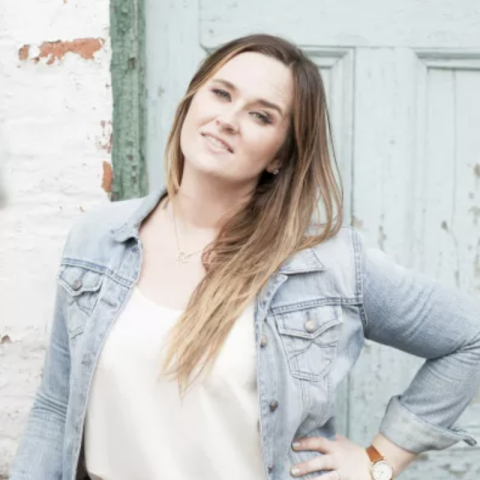Having your little one embark on their kindergarten journey is such an exciting time, filled with wonder, worry, nostalgia—and, of course, some questions about all the newness and unknowns, too. As a former middle-school teacher myself, I know all about the first-day jitters and emotions that both kids and parents will likely experience ahead of the first day of school. Since my little girl is also about to start kindergarten too, I also understand and empathize with this big transition. So, I talked to three experienced kindergarten teachers to uncover their expert advice, opinions, and insight on everything from first-day prep to must-have conversations, and more. Below, kindergarten teachers share what they wish parents knew ahead of the first day of school.
On Preparing Your Child for Their First Day
It can feel tempting to do a lot of preparation before their first day of kindergarten, but all three teachers agree that it’s not necessary. Caitlin Montouri, an NJ-based kindergarten teacher says, “Don’t worry so much about prepping for academics but make sure your child knows how to open their lunch containers and can easily get out of and back into clothing after using the restroom!” She also advises doing your best to ensure your child understands the concept of personal space to avoid any hiccups early on.
For a smooth first day, Alessandra DeMeo-Feinstien, a kindergarten teacher in New York also recommends making sure your child can use a restroom independently and knows their name! She also reassures parents saying, “It’s OK if they cry the first few days, we promise they will be OK in our care and we will be there for their needs.”
On Calming Their Nerves for Kindergarten
Nerves are a normal part of this transition for you, your child, and even your child’s teacher! Mallory Steele, a kindergarten teacher in Delaware says, “We are all nervous, your teacher too! We’re all new to each other and whatever you are feeling is normal.”
Montouri adds, “Not every child went to the same camp or Pre-K with the same crew, it can be lonely those first days.”
If you snag a class list ahead of time, try to see if you can facilitate some low-pressure playdates. If not, remind your child that every kid is experiencing nerves and some butterflies as they face something new and it’s not just them. Try your best to validate your kiddo’s feelings and reassure them that feeling nervous before starting something new is completely normal and acceptable, and the feelings should pass soon.
On Kindergarten Social Development
For many, kindergarten will be the first time children are experiencing daily routines and interactions with their peers—forming friendships and navigating social challenges. None of this is easy, but it is all a part of growing up, and there are some things you can work on at home to help strengthen your child’s social skills.
At this age, a lot of kids can be slow to warm up and tend to turn into themselves in the beginning, but Montouri suggests encouraging your child to be open-minded to new friendships and playmates. Change is hard, but new beginnings are a great, exciting part of life.
DeMeo-Feinstein also stresses the importance of working with your child to express and articulate their big feelings, because “social-emotional learning is very important.” She adds, “Encourage your children to observe and talk about their experiences. Conversations with adults who care enrich a child’s vocabulary and understanding of the world.”

On Teacher and Student Dynamics
The relationship between your student and their teacher is extremely important. For many kids, kindergarten is their first time experiencing consistent half or full days of care under someone that isn’t you, or your family!
For your child to thrive, they should feel comfortable and safe in school, and this all boils down to the relationship they have with their teacher. The good news? You can take steps at home to ensure it’s a healthy and happy one.
Mallory says, “No teacher is perfect but please know that your child’s teacher wants to work WITH you. It’s a team effort. Try to keep that in mind if ever any negative situations come about. We care about your child, too.”
It’s also important to remember that so much kinder prep begins at home—especially with respect. She adds, “Respect starts at home. We are professionals and if you respect us your kiddo will, too!”

Erin Celletti, Contributing Writer
Erin is an NYC-based writer with a BA in Journalism from Quinnipiac University and two master’s degrees in education. She is a proud mama to a little girl and a lifestyle, beauty, wellness, and trends reports writer. Beyond The Everymom, Erin’s editorial work has been featured in publications like Bustle, Allure, Byrdie, The Everygirl, TeenVogue, BRIDES, Sunday Edit, and TODAY.


 "
"